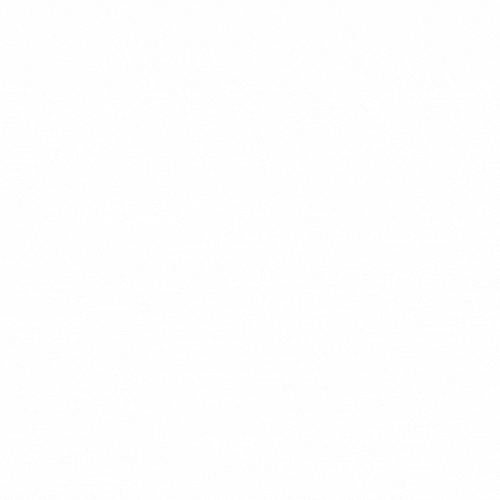Progressivitas Perilaku Hidup Bersih dan Sehat Menuju Adaptasi Kebiasaan Baru (AKB) di Kota Binjai
DOI:
https://doi.org/10.35473/proheallth.v3i2.637Keywords:
Covid-19, PHBS, New NormalAbstract
Corona Virus Disease (COVID-19) is an infectious disease caused by a type of coronavirus that was only discovered in 2020. This virus and the disease were previously unknown before it broke out in Wuhan, China, in December 2019. WHO declared the Covid-19 pandemic on March 11, 2020, in which one of the countries affected was Indonesia. The number of positive cases of Covid-19 in North Sumatra until August 2020 was 5,898 people, of whom 2,833 people recovered and 260 died. In Binjai City, there were 104 positive cases of Covid-19 by the end of August 2020, of whom 28Â people recovered and 10 died. This study, therefore, aims to determine the overview of efforts living healthy (PHBS) towards New Norm (AKB) in Binjai Barat District, Sukaramai Village. A qualitative approach with a case study design was used for this research. In-depth interviews, observation and documentation were conducted for data collection from 5 informants, namely the person who lives in Sukaramai Village with a total population of 9,268 people. This study found the people of West Binjai city have good behaviour towards the New Norm. These were evidenced by the information of several informants and the relatively low number of Covid-19 case. Based on the results of research in the field on community behaviour which includes knowledge, benefits, and attitudes of PHBS, it can be concluded overall that residents have appropriate attitudes and support for living healthy (PHBS).
References
Binns C, Low WY, Kyung LM. The COVID-19 Pandemic: Public Health and Epidemiology: Asia Pac J Public Health [Internet]. 2020 May 19 [cited 2020 Sep 18]; Available from: https://journals.sagepub.com/doi/10.1177/1010539520929223
CDC, 2020. Emerging infectious diseases epidemiology of Covid-19 outbreak, Vol. 26 No. 11 Februari 2020 Japan: https://wwwnc.cdc.gov/eid/aticle/26/11/20-1165_article.
WHO, Pertanyaan dan Jawaban Terkait Coronavirus, di akses, 2020. [online]. Available: https://www.who.int/indonesia/news/novel-coronavirus/qa-for-publis
Muhyiddin. Covid-19, New Normal Dan Perencanaan Pembangunan Indonesia. Vol. 4 No. 2 Juni 2020.
Perdana RC, Agustino MR, Hartawan D, Suyoso YA, Sari R. Adaptasi dan Kebiasaan Baru Human Resource Department di Masa Pandemik Covid-19. Bus Innov Entrep J. 2020 Aug 31;2(3):201–4.
Salsabila. Menjaga Hidup Bersih dan Sehat Pasca Covid-19. 2020
Nugroho A. Covid-19 Forms New Behaviors [Internet]. [cited 2020 Sep 18]. Available from: https://www.ugm.ac.id/en/news/19400-Covid-19-forms-new-behaviors
Dipna, Putsanra Videlia. Bagaimana Penerapan New Normal Pada Saat Pandemi. Jakarta: 2020. https://tirto.id/apa-itu-new-normal-dan-bagaimana penerapannya-saat-pandemi-corona-fCSgDepartemen Kesehatan, 2009. Program Perilaku Hidup Bersih dan Sehat. Jakarta: Dinas Kesehatan Kota Bandung
Nurhajati Nunun. Perilaku Hidup Bersih Dan Sehat (PHBS) Masyarakat Desa Samir Dalam Meningkatkan Kesehatan Masyarakat, Vol. 8 No. 1 Februari 2015.
Depkes RI. Perilaku Hidup Bersih dan Sehat di Indonesia. 2005
Sugiyono. Metode Penelitian Pendidikan: Pendekatan Kuantitatif, Kualitatif dan R&D. Bandung: Alfabeta. 2010.
Kementrian Kesehatan RI, 2011. Pedoman Pembinaan Perilaku Hidup Bersih dan Sehat. Jakarta: Kementrian Kesehatan.
Utami RA, Mose RE, Martini M. Pengetahuan, Sikap dan Keterampilan Masyarakat dalam Pencegahan COVID-19 di DKI Jakarta. J Kesehat Holist. 2020 Jul 26;4(2):68–77.
Kemenkes RI. Perilaku Hidup Bersih dan Sehat. Jakarta . 2016.
Notoatmodjo, Soekidjo. Promosi Kesehatan dan Ilmu Perilaku, Jakarta: PT Rineka Cipta. 2007.
Satria BA, Hasanah NH, Rudiansyah R. Penyuluhan Adaptasi Tatanan Kebiasaan Baru Desa Tangguh Covid-19. J ANOA. 2020 Aug 1;1(3):107–22.
Djalante R, Lassa J, Setiamarga D, Sudjatma A, Indrawan M, Haryanto B, et al. Review and analysis of current responses to COVID-19 in Indonesia: Period of January to March 2020. Prog Disaster Sci. 2020 Apr 1;6:100091.
Ramadhana MR. Mempersiapkan Ketahanan Keluarga Selama Adaptasi Kebiasaan Baru Di Masa Pandemi Covid-19. J Kependud Indones. 2020 Jul 28;0(0):61–8.
Hartanto, 2009. Membudayakan Gerakan Cuci Tangan. http://suaramerdeka.com/v1/index.php/read/cetak/2009/10/15/84162/Membudayakan.geraka.Cuci.Tangan. Diunduh 01 November 2010
Hidayat, T. Buku Saku Rumah Tangga Sehat Dengan PHBS, Pusat Promosi Kesehatan, Medan: 2017.
Ngadiran A, Tambunan R, Sitorus N, Saragih B, Sariningsih OD, Juliyanti J, et al. Peningkatan Kemandirian Keluarga dalam Adaptasi Menghadapi Kehidupan New Normal. JPKMI J Pengabdi Kpd Masy Indones. 2020 Aug 26;1(3):186–94
Ardhana Januar Mahardhani MK. Menjadi Warga Negara yang Baik pada Masa Pandemi Covid-19: Persprektif Kenormalan Baru. JPK J Pancasila Dan Kewarganegaraan. 2020 Jul 29;5(2):65–76.
Mario. Skenario Hadapi New Normal dan Perilaku Hidup Bersih dan Sehat. 2020. https://waspada.co.id/2020/05/skenario-hadapi-new-normal-menurut-pakar-ketahui-4-fakta-ini/.
Herdiana D. Penanggulangan COVID-19 Tingkat Lokal Melalui Kebijakan Adaptasi Kebiasaan Baru (AKB) di Provinsi Jawa Barat. J Gov Innov. 2020 Sep 11;2(2):131–56.
Noda Y. Socioeconomical transformation and mental health impact by the COVID-19’s ultimate VUCA era: Toward the New Normal, the New Japan, and the New World. Asian J Psychiatry. 2020 Dec;54:102262.
Published
Issue
Section
License
As part of the submission process, authors are required to check off their submission's compliance with all of the following items, and submissions may be returned to authors that do not adhere to these guidelines.
- The submission file is in OpenOffice, Microsoft Word, RTF, or WordPerfect document file format.
- Below the abstract, about three to five keywords should appear together with the main body of the article with the font size 11.
- Institutional affiliations, and the email address of the corresponding author should appear only on a detachable cover sheet.
- If submitting to a peer-reviewed section of the journal, the instructions in Ensuring a Blind Review have been followed.
- Citation is done using bracket (last name and year of publication). When the sources are cited verbatim, page number is included (p. 78 or pp. 78-89).


